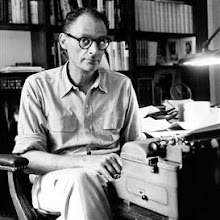 André Kostolany (February 9, 1906 - September 14, 1999) was a world-renowned stock market expert and speculator. He worked most of his life in France and Germany.
André Kostolany (February 9, 1906 - September 14, 1999) was a world-renowned stock market expert and speculator. He worked most of his life in France and Germany. Kostolany was born in Budapest, a Hungarian Roman Catholic of Jewish descent. He originally studied Philosophy and History of Art in Budapest but his father forced him to abandon his studies and sent him to Paris in 1927, to work as a broker. There he began his career as a speculator and arbitrageur. He was able to make a profit of the decline in market prices which began in the end of 1929, having been bearish at the time. When the Germans occupied France in 1940, he fled to New York. From 1941 to 1950 he was the general director and president of the G. Ballai and Co Financing Company. From 1950 he lived in Paris, in Munich and on the Côte d’Azur. After World War II he invested heavily in the reconstruction of Germany, The subsequent economic boom helped him build up his fortune. In return, Kostolany spent most of his later life writing columns and holding seminars about the stock market in Germany, where he became famous as a stock market expert. His fame was founded in the vast amount of practical experience he had accumulated during his 70 year career, in different trades, in many markets around the world. He died in Paris at the age of 93.
Kostolany, spurred by his successful investment in Germany after World War II, held a deep respect for "the inherent qualities and capabilities of the German people", which, according to him, would consequently lead Germany to a new economic boom, after the German economy absorbed the shock of reunification.
Kostolany was a critic of the gold standard, the monetary system that fixes exchange rates to the price of gold, since he believed that whenever it was used, it suppressed economic growth and led to cyclical crises. Consequently, he was a very vocal critic of the fiscal policy of the Bundesbank during the 1980s and 1990s.
Kostolany was a critic of the gold standard, the monetary system that fixes exchange rates to the price of gold, since he believed that whenever it was used, it suppressed economic growth and led to cyclical crises. Consequently, he was a very vocal critic of the fiscal policy of the Bundesbank during the 1980s and 1990s.
Kostolany published a lot of educational material in various languages, including 13 books that sold more than 3 million copies in total. He was for many years the author of a column in Capital, a stock market related magazine in Germany (he wrote a total of 414 articles).
 André Kostolany (Budapest, 1906. február 9. – 1999. szeptember 14.) tőzsdeguru és spekuláns. Életének legnagyobb részét Franciaországban és Németországban töltötte.
André Kostolany (Budapest, 1906. február 9. – 1999. szeptember 14.) tőzsdeguru és spekuláns. Életének legnagyobb részét Franciaországban és Németországban töltötte.1906. február 9-én egy jómódú zsidó család gyermekeként látta meg a napvilágot Budapesten. A gimnáziumi évek után – ahol Teller Edével együtt koptatta az iskolapadot –, az egyetemen filozófiát és művészettörténet tanult. 21 évesen, egyetemi tanulmányai alatt, édesapja kezdeményezésére Párizsba került, ahol apja ifjúkori barátja, egy francia tőzsdealkusz mellett leste el a tőzsdék működésének fortélyait. A második világháború idején a család az Egyesült Államokba menekült, majd az 1950-es években Németországban és Franciaországban élt. Az ifjú Kostolanyt hamar hatalmába kerítette az akkori Párizs csillogásának varázsa. Spekulánsként a sikerek mellett számos kudarc is érte. „A tőzsdén is a szerencse a legfontosabb. A börzén nem az intelligenciámnak köszönhetően voltak sikereim, hanem annak, hogy szerencsés vagyok. Voltak persze ötleteim, meglátásaim, vízióim, amelyekből nagy pénzt tudtam csinálni, és voltak kevésbé szerencsés időszakaim is, amikor veszteséges voltam, de a végén a szaldó mindig pozitív, és ez a lényeg.” Szintén gyakran hangoztatta, hogy: „akinek sok pénze van, annak lehet spekulálni, akinek kevés a pénze, annak nem szabad spekulálni, akinek pedig egyáltalán nincs pénze, annak muszáj spekulálni”. Számos könyvet írt és rendszeresen publikált a Capital című lapban. 1999. szeptember 14-én, 92 évesen halt meg a magyar származású tőzsdeguru, és 90 évesen írta azt az önéletrajzi regényt, amelyben ez áll: „Ha elég fiatal lennék, mondjuk még csak 70 éves, akkor megalapítanám az optimisták iskoláját.” Még 70 évesen is tervei voltak, legfőbb álma pedig az volt, hogy megérje az ezredfordulót.
















.jpg)


















Nincsenek megjegyzések:
Megjegyzés küldése